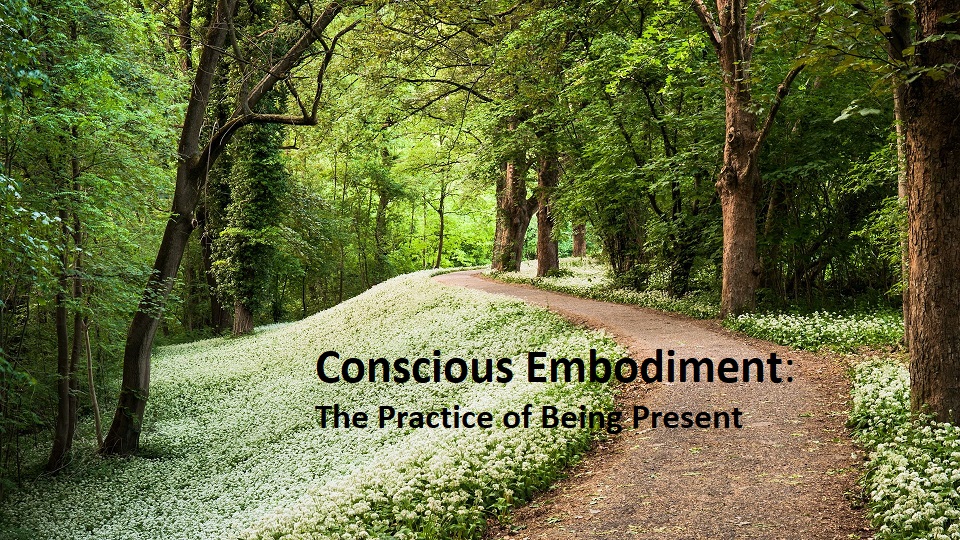
Adrenal Fatigue:
the Challenge to be Present

I have had a few bouts of adrenal fatigue, now. The worst was the first one and luckily, subsequent ones have not been as severe as that. But they are nonetheless debilitating.
If you don't know what adrenal fatigue is, it is worth reading up on. Many people can be diagnosed with Depression or an Anxiety Disorder when what they actually have is Adrenal Fatigue.
From Dr. James L Wilson's website, adrenalfatigue.org:
Adrenal fatigue is a collection of signs and symptoms, known as a syndrome, that results when the adrenal glands function below the necessary level. Most commonly associated with intense or prolonged stress, it can also arise during or after acute or chronic infections, especially respiratory infections such as influenza, bronchitis or pneumonia. As the name suggests, its paramount symptom is fatigue that is not relieved by sleep but it is not a readily identifiable entity like measles or a growth on the end of your finger. You may look and act relatively normal with adrenal fatigue and may not have any obvious signs of physical illness, yet you live with a general sense of unwellness, tiredness or “gray” feelings. People experiencing adrenal fatigue often have to use coffee, colas and other stimulants to get going in the morning and to prop themselves up during the day.
This syndrome has been known by many other names throughout the past century, such as non-Addison’s hypoadrenia, sub-clinical hypoadrenia, neurasthenia, adrenal neurasthenia, adrenal apathy and adrenal fatigue. Although it affects millions of people in the U.S. and around the world, conventional medicine does not yet recognize it as a distinct syndrome.
It is a problem that many doctors do not recognize this condition – do not recognize it as a condition, and/or do not recognize the symptoms. Because it is only by understanding exactly what is going on, that you can properly treat it. It is an insidious condition, as you are constantly aware of not feeling or functioning at your normal levels, and that the usual things you might do to try to feel and to function better, don't work.
Adrenal fatigue can brought on by any number of factors. I expect my latest episode was the result of a number of factors in combination. I suspect that increased consumption of sugar, alcohol and refined carbohydrates over the holidays (i.e. mid-December to mid-January) all contributed to lowering my resilience.
Then in January, I put my back out walking on an icy trail. Pain and stiffness resulted in interrupted sleep, and insufficient sleep, over several weeks. In the same period of time, I was having to read up on begin learning how to promote my first book, which was a steep learning curve. These factors probably combined to create a "perfect storm" of physiological stress, physical stress, mental stress and lowered resilience.
Suddenly, one day, I recognized the physical and mental state that I know from experience are an indication of adrenal fatigue. I just didn't have the energy to do what I needed to do – or even, what I wanted to do. My motivation for doing anything was low, and I felt anxious at the thought of pushing myself to do anything. Every morning, I was waking up feeling tired, rather than rested. I was starting to use more caffeine to get going in the morning, and to get through the day.
If you haven't had adrenal fatigue, it is impossible to grasp how it affects you. On the other hand, many people do have adrenal fatigue, without ever being diagnosed. Many people actually do know how it feels, but are not aware that they know.
In general, medical doctors are largely ignorant of this condition as they have not been trained to believe in it, let alone diagnose it. As the symptoms can very much resemble symptoms of depression, that is more likely what they will diagnose. Symptoms include feeling easily overwhelmed, unable to cope, anxiety that can be provoked by very small stressors, brain fog, poor memory, feeling drained of energy, easily exhausted by doing even a little too much, as well as other symptoms such as increased sensitivity to cold temperatures (or to feeling cold even when others aren't).
When you have adrenal fatigue you can feel overwhelmed at what are ordinary tasks, normal parts of your routine. If you do even just a little more than you have the energy for, you can easily feel drained or even exhausted. So the condition challenges – even forces – you to be very present. You are challenged to be present to your body's needs for rest and recuperation, and for a healthy diet.
Because you feel drained, it is easy to feel a craving for stimulants such as sugar and caffeine as well as refined carbohydrates, all of which provide quick energy, and all of which further diminish your resilience and your immune system. Because your resilience is low, it is also harder to resist cravings for comfort foods and/or mood altering foods, including alcohol.
Notice how this comes full circle? Each one of these behaviours, of course, is the result of being less present to myself and to the true needs of my body, and being more focused on indulging cravings and desires. This was exactly the pattern that I suspect began setting me up for this episode in the first place. A normal enough tendency over the Christmas holidays (and often, as I did, continuing afterwards) but not without its consequences.
So, the original precipitating factors were the result of not being fully present to myself, and the result is a condition where it is difficult to remain present to myself.
It is also noteworthy that if I been fully present when I had been walking in January, I would have been in tune with how my body felt on the irregular and icy terrain and walked more slowly and carefully, rather than being focused on my intent to make the walk a bit of a workout, an exertion. Moving ahead on the basis of an idea of what I thought I should make of this walk rather than being present to the actual experience of walking, of my body and of the environment, resulted in weeks of pain and stiffness.
So, lapses in being present, being fully present, resulted in this consequence of adrenal fatigue, of the body, at a physiological level, saying, "enough". Unfortunately, with adrenal fatigue it is not simply a matter of recognizing the body's message, slowing down, resting a bit and continuing on. It is a condition that saps your energy, your cognitive and physical abilities, in a profound way that affects functioning over weeks and months. It requires re-engaging being present at a whole new level.
With adrenal fatigue, you are also challenged to be very present to your thoughts. All the thoughts that tell you that you "should" do certain things or "have to" do certain things need to be examined and questioned, because if you were to act on these thoughts, you would exhaust yourself, impede your recovery, and easily feel overwhelmed. I am therefore challenged to keep paring down thoughts and beliefs about what must be done to the most basic, minimal essentials. Being present to myself, my current state and reality, the signals from my brain and body, are a constant priority.
At one point, it began bothering me that I hadn't been to the gym for a few months. Between my back being out and that the onset of adrenal fatigue, I had taken care not to exacerbate things, and so I had stopped going to the gym. But it bothered me that I could feel the loss of strength and of muscle mass and so I started returning to the gym.
I told myself that I would do gentle workouts, not pushing myself. Which I did – for the first two weeks. But then I started feeling impatient and wanting to push myself, and I allowed this feeling, this impulse, to replace being present to myself.
And of course, this backfired. I found myself being more tired after going to the gym, rather than energized, and I had to stop again. At the same time, my muscles were not dealing well with the exercise and keeping me awake at night again, further decreasing my resilience. (Muscle discomfort and cramping can also be a symptom of adrenal fatigue!)
So as you can see, adrenal fatigue is very much a problem on the Path of Presence. Personally, in the context of my experience, I see it both as a consequence of not being present to myself, and an invitation that challenges me – even forces me! – to return to the Path of Presence. To really being present to myself, and making choices based on and in alignment with, that self-awareness.
It is a painful lesson, one I hope I learn soon!
Disclaimer: none of the information in this article should be construed as medical information or advice, as the writer is not qualified to dispense either.
